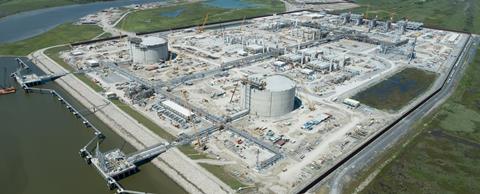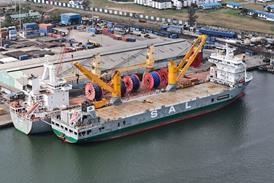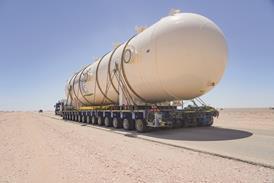It’s election year in the USA, and so begins the quadrennial state of flux where presidential candidates set out their positions and priorities – during which, the energy sector often gets caught in the crossfire. Mooted delays to large-scale LNG export projects will be a cause for concern for project logistics and heavy lift specialists.

It seems incumbent president Joe Biden has already started laying the foundation for his election campaign, with his administration delaying its decision on whether to approve Venture Global’s Calcasieu Pass 2 (CP2) LNG project in Louisiana – slated to become the USA’s largest facility with an export capacity of around 20 million tonnes per year.
The delay comes as the Biden administration considers an overhaul of the natural gas export approval process to include more climate change criteria – perhaps to win the support of climate-minded voters – as well as considerations like potential energy cost increases, throwing other major Gulf projects that are pending federal approval into question.
A statement from the Biden administration explained that the current economic and environmental analyses that the Department of Energy (DOE) uses to underpin its LNG export authorisations “are roughly five years old and no longer adequately account for considerations like potential energy cost increases for American consumers and manufacturers beyond current authorisations or the latest assessment of the impact of greenhouse gas emissions”.
It went on: “Today, we have an evolving understanding of the market need for LNG, the long-term supply of LNG, and the perilous impacts of methane on our planet. We also must adequately guard against risks to the health of our communities, especially frontline communities in the USA who disproportionately shoulder the burden of pollution from new export facilities.”
Certainly, any moratorium on the approval processes will weigh on investment decisions and would throw the USA’s LNG surge off-kilter.
LNG export terminals have been developed at pace in the USA, creating work for project logisticians skilled in moving modules and oversize cargoes. The USA overtook Qatar as the world’s largest LNG exporter at the turn of 2024, exporting 91.2 million tonnes over 2023 – a record for the country. Favourable winds in global gas markets suggested that a further expansion of LNG was on the cards for the USA.
While its opponent in the global LNG race, Qatar, moves ahead with its massive North Field expansion – boosting LNG output by 64 percent (49 million tonnes annually) to 126 million tonnes annually by 2027 – the USA has three expansion projects with final investment decisions (FIDs) on the go: Venture Global’s Plaquemines LNG, Sempra’s Port Arthur LNG and NextDecade’s Rio Grande LNG.
Those projects will add around 44 million tonnes of LNG capacity annually and provide a healthy chunk of work for heavy lift and project logisticians to sink their teeth into. As for the other potential projects in the queue, however, the shadow of doubt has been cast. While nothing as yet has been confirmed by the president, an overhaul of the approval process could include updating how the administration determines climate impacts of these projects, modernising and updating the climate impact considerations, and considering the full upstream and downstream life cycle impacts of projects.
For the supply chains hoping to support the masses of investment that was expected in the sector, it will be a case of observing from the side-lines as the political silly season plays out.
















